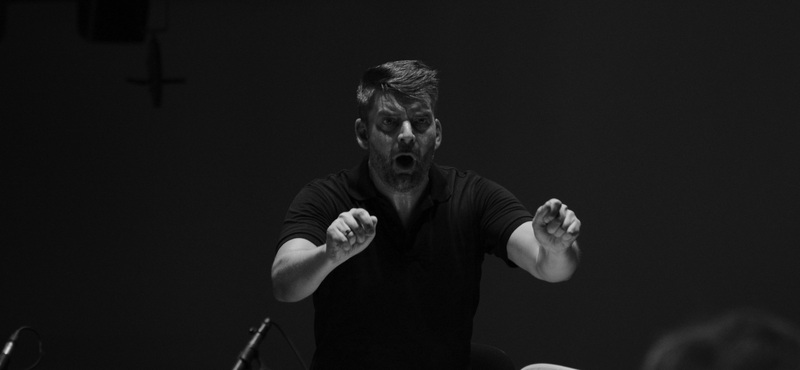An impressive debut

Yulianna Avdeeva is a master of Chopin’s music…
Things are looking slightly better for the Baltimore Symphony Orchestra. After a cruel and crippling work stoppage last summer, labor and management have tried to work together with other stakeholders to find a way towards a stable financial future. While the existential question – will the BSO remain a full-time job – is unresolved and will be the subject of intense negotiations next month, other indicia give some hope.
So Sunday’s well-attended performance at Strathmore under music director Marin Alsop carried a positive atmosphere and perhaps not coincidentally showed the orchestra playing at its finest. Things didn’t start off perfectly in the Mozart Figaro Overture, where the violins’ rapid figurations were neither crisp enough nor together enough. But everyone rolled out a lovely welcome mat for Russian pianist Yulianna Avdeeva, making her BSO debut in the Chopin F minor Concerto. Avdeeva is a gifted artist who’s made a specialty of the Polish master, winning the Chopin Competition in 2010 and recording the concertos soon thereafter. She responds with deep feeling to the lyrical lines, but all of the “feeling” comes in the playing; her focus, discipline, and lack of mannerisms at the instrument are exemplary. There was coruscating virtuosity in the fireworks, but she managed to convey the brilliance at moderate tempos, something very difficult to do. I would only say that the martial themes felt a little smoothed-out; Chopin calls for every kind of texture, not just elegant beauty. His accompaniments are not difficult – once the soloist enters, the orchestra is little more than backdrop – but Alsop helped bring out some delectable back-and-forth between soloist and woodwinds in the Larghetto.
Prokofiev’s Romeo & Juliet, one of his finest works, is an orchestral showpiece that throws challenges in all directions. Like most ballet scores, it feels a little clunky in concert, with all the stopping in between different, short numbers. And since symphonic performances are always unconnected excerpts, there’s no arc or narrative given all the omitted numbers (I was disappointed that Alsop didn’t include any of the passionate balcony-scene music, but hard choices have to be made). There were some sleepy tempos from Alsop – the Capulet knights came across as tired gents, and Juliet was almost yawning. Concertmaster Jonathan Carney clearly needed the Aubade to go a little faster in his solo. But throughout, the BSO played with fire and precision. Though it recently lost its principal to London’s Royal Opera, the horn section gloriously nailed the treacherous high notes in the tomb scene; the violins dazzled in the swordfight music, the cellos were secure and singing in Friar Lawrence, and the entire ensemble worked gossamer magic in the Dance of the Antilles Girls. This was world-class orchestra playing, from all concerned.





